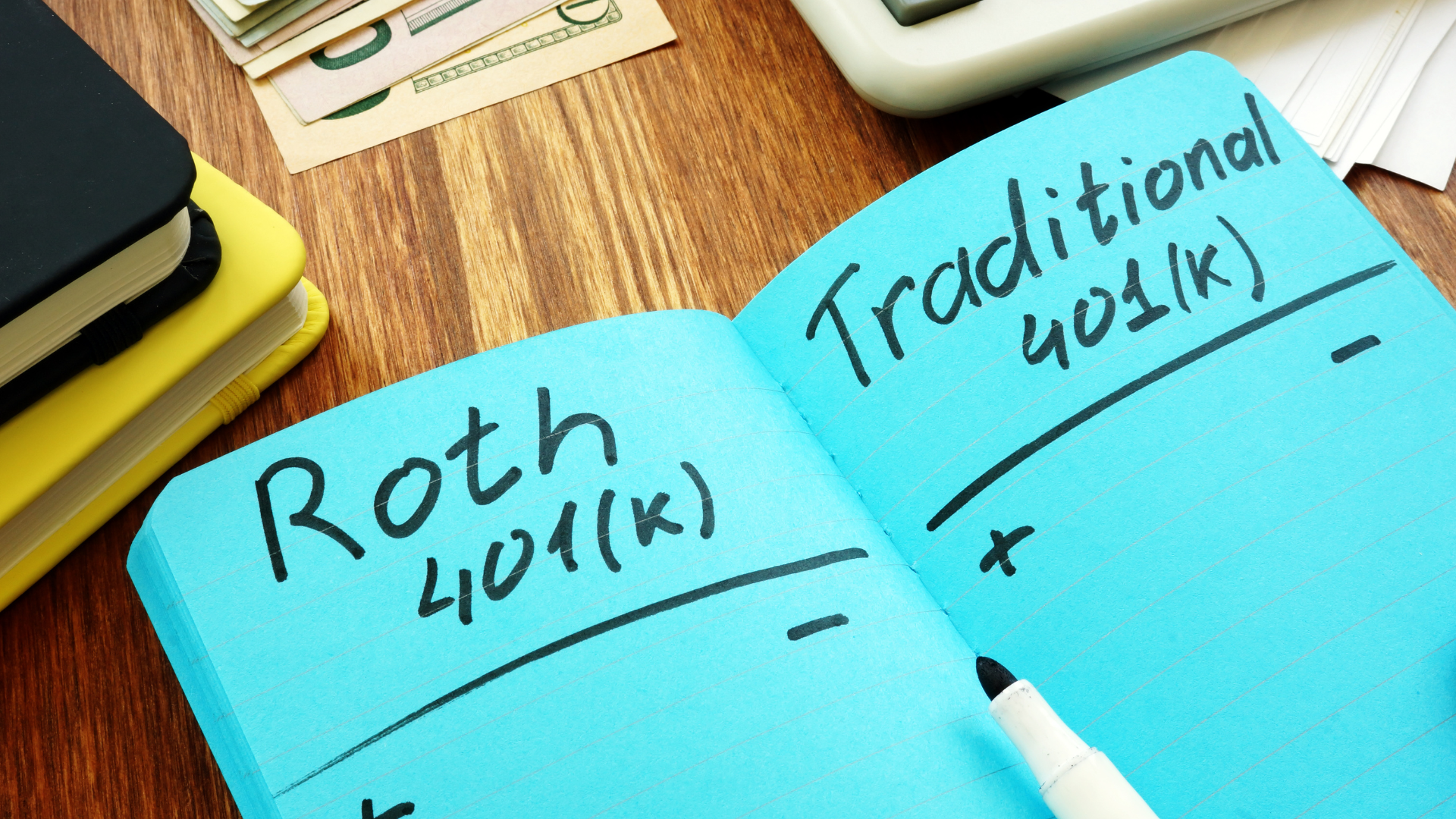Roth vs. Traditional 401(k): How to Choose
Many companies now offer the choice between making Roth 401(k) contributions or traditional 401(k) contributions (or both!).
Before we get into how to decide the best approach for you, let’s cover a few of the basics.
What is the Difference Between Roth and Traditional?
These are some of the key attributes of Roth and traditional 401(k)’s:
Roth
- Roth contributions are made with after tax money, so there is no tax break in the year that you make the contribution.
- Withdrawals are completely tax and penalty free if you’re over 59 ½ (see one exception below).
- For earnings in the account to be withdrawn tax free, your first contribution to the account must have been at least 5 years prior.
- You have to take required minimum distributions (RMD’s) from the account starting in the year you turn 72. However, if you roll the money over to a Roth IRA, there is no requirement to take RMD’s.
Traditional
- Traditional 401(k) contributions are made with pre-tax dollars, so you get a tax break in the year you make a contribution.
- Withdrawals are taxed as ordinary income, in the same way your salary is taxed.
- RMD’s are a must, starting in the year you turn 72.
- As with Roth accounts, there is a 10% penalty for most withdrawals taken before age 59 ½.
One additional note: employer matching or profit sharing contributions are always considered traditional contributions, so ordinary income tax is paid when they are withdrawn.
Now let’s take a look at how to decide which type of account is most beneficial to you.
The Key Consideration – Tax Rates
The most important factor in deciding between Roth or traditional contributions are your current and future tax rates.
If you expect to be in a lower tax bracket when you withdraw the money, taking the current tax benefit of the traditional 401(k) would be best.
A Roth would be more advantageous if you are in a low tax bracket today and anticipate paying a higher tax rate in the future when you can withdraw the money tax free.
If you’re not sure how your current tax picture compares to what it may be in the future, you could split contributions between each of the options.
The Best Tax Planning Strategy
While no one knows for sure what their tax rate will be in the future, the reality is that our income levels can fluctuate throughout our lifetimes.
Maybe one spouse decides to stay home with kids for a period of time, or maybe you start a business, or know that a big bonus is coming your way in a year or two.
When you have this type of variable income, you can switch between Roth and traditional contributions depending on your income level for that year.
In high income years, reduce your tax bill by making traditional 401(k) contributions, and in lower income years, pay the lower tax upfront by making Roth contributions.
This gives you the best chance to minimize the taxes you pay over your lifetime.
Other Considerations
While tax rates are the primary consideration when deciding between Roth and traditional contributions, there are a few other differences between these accounts that may factor into your decision making process.
Estate planning
Roth IRA’s in particular have significant value as an estate planning tool. And if you roll your Roth 401(k) into an IRA, you can take advantage of this.
Roth IRA’s have no RMD requirement, so money can be left in these accounts until you die. And if you leave a Roth IRA to your children, they will pay no taxes when the money is distributed to them.
Charitable Giving
If you’re charitably inclined, traditional IRA’s have a benefit that could allow you to make charitable contributions with money that never shows up as income on your tax return.
Qualified charitable distributions can be made beginning in the year you turn 70 ½. These distributions are tax free and are not reported as income on your tax return, which is important for minimizing taxes you pay on social security income and premiums you pay for medicare.
Final Thoughts
Whether or not a traditional or Roth 401(k) is best for your situation can be a little bit of a guessing game based on where you expect your tax rates to be in the future.
And as with most personal finance decisions, everybody’s situation is unique and there are many variables in your personal life that impact what you should do.
If we can help, get in touch with us here!
Joe Calvetti is a CPA and the founder of Still River Financial Planning, a comprehensive, fee-only financial planning firm that specializes in working with young families and professionals. Click here to learn more about how we work with clients.
Are you interested in staying up to date on new articles and other news from us? Sign up for our newsletter or follow us on Facebook and Instagram.
Ready to learn more about how we can work together? Schedule an introductory call.
Disclaimer: The information provided above is for educational purposes only and should not be considered financial, legal, or tax advice. You should consult with a professional for advice specific to your situation.





